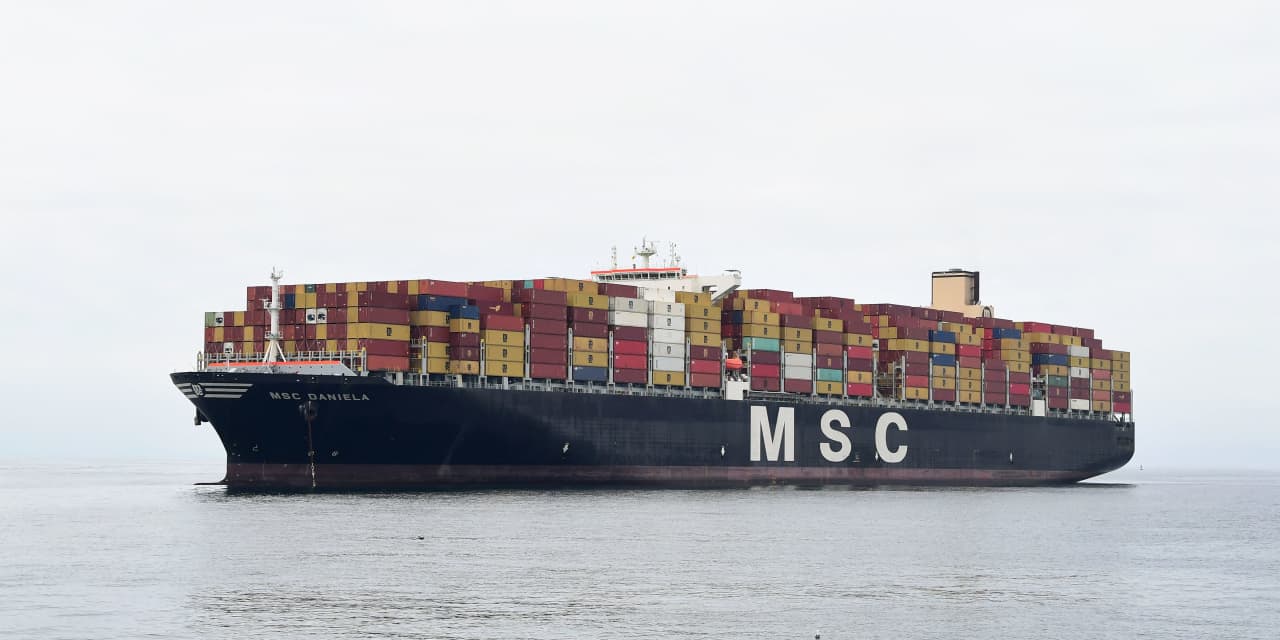Shipping companies continue to abandon the Red Sea, one of the most-trafficked water routes in the world, after a series of attacks on ships.
The latest to say they would suspend using the route is Swiss-based MSC, which is one of the world’s biggest container shipping companies.
The move came in response to a Friday attack on its ship, the MSC Palatium III, MSC said in a Saturday press release. “All crew are safe with no reported injuries, meanwhile the vessel suffered limited fire damage and has been taken out of service,” the statement said.
The Iran-backed Houthi movement in Yemen has attacked ships in the Red Sea over the last several weeks, following the start of the war between Israel and Hamas in Gaza. On Friday, major shipping firms Maersk and Hapag-Lloyd also said they would temporarily avoid the Red Sea following attacks on their ships.
Following their announcements, shares of
Maersk
advanced about 8% on Friday, while shares of
Hapag-Lloyd
rose about 16%.
The Red Sea is typically the shortest trade route for ships bringing goods from Asia to Europe, passing close to Yemen in the south and through Egypt’s Suez Canal in the north. Without that passage, MSC on Saturday said it would route some ships around the southern tip of Africa, which adds days to their journeys.
Trade routes were already under stress even before the attacks: Shippers lately have been partly restricted from using the Panama Canal to take goods between Asia and the East Coast of the United States because of low water levels. Losing the Suez Canal, even temporarily, would make the voyage take even longer.
“Both canals exist because they dramatically reduce shipping days and costs. Thus restrictions on their use exert multiplying effects on total shipping effects and costs,” wrote Wells Fargo analysts in a research note on Friday.
The analysts said attacks could also impact the energy market, since ships use the Suez Canal to take petroleum and natural gas exports from the U.S. to East Asia.
Write to Joe Light at [email protected]
Read the full article here




